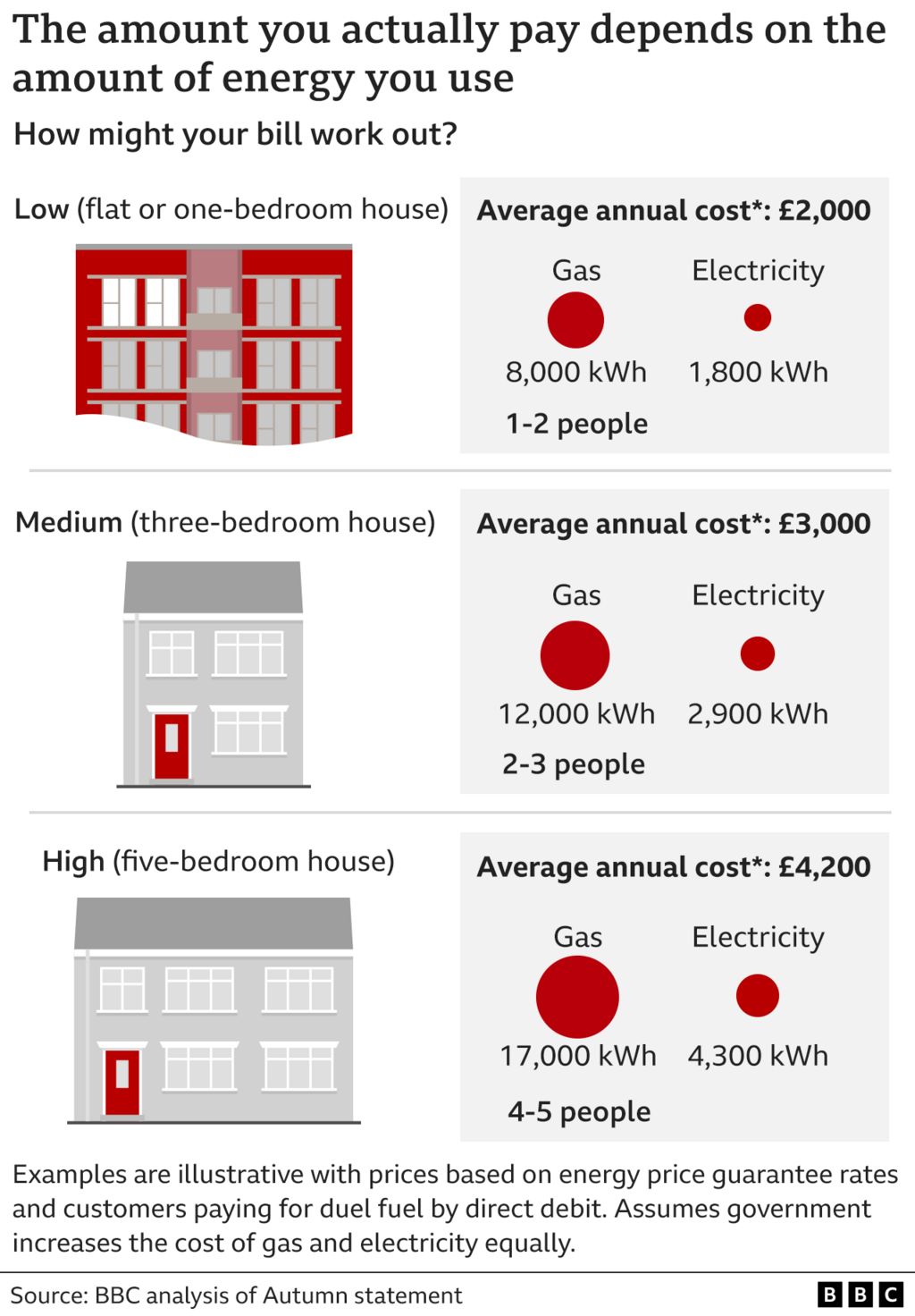A typical domestic energy bill will rise in April but there are fresh forecasts of subsequent falls.
 Image source, Getty Images
Image source, Getty ImagesA typical domestic energy bill will rise in April – but predictions of subsequent falls may prompt the return of competition and customer switching.
At present, a government guarantee sees the annual gas and electricity bill for an average home limited to £2,500, alongside an additional £400 discount.
That cap will rise to £3,000 in April, but forecasts suggest the limit will soon become redundant.
Analysts Cornwall Insight say a typical bill will drop back to £2,153 in July.
The energy consultancy expects the annual bill for an average household to remain at close to that level for the rest of the year.
“While tumbling cap projections are a positive, unfortunately, already stretched households will be seeing little benefit before July,” said Craig Lowrey, principal consultant at Cornwall Insight.
However, he said that the conditions later in the year could lead to “the return of competitive tariffs”, and with it the chance for consumers to “take back some control over their energy bills”.
Investment firm Investec has also made very similar forecasts to Cornwall Insight – pointing out that the drops mean the total cost faced by the government to subsidise energy bills will be lower than previously expected.
Campaigners and consumer groups have been lobbying ministers to use the savings to further support billpayers. The Labour Party has also called for a three-month extension to the current government guarantee.
There has been a sharp drop in wholesale gas and electricity prices in recent weeks that has raised hopes that the worst of the energy crisis could be receding.
How the price caps work
A huge majority of households in the UK have a variable or default gas and electricity tariff. The price per unit of energy is capped in England, Wales and Scotland at what is considered an appropriate level by the energy regulator Ofgem. The cap is set every three months.
Huge costs faced by suppliers meant that would have left a household using a typical amount of gas and electricity paying £4,279 a year from the start of January.
So, the government stepped in to cover some of that cost for people across the UK. Its Energy Price Guarantee (EPG) means the typical household pays £2,500 a year now, rising to £3,000 a year in April.
That is still a massive hike on the bills people had been accustomed to. In the winter of 2021-22, the typical annual bill was £1,277 and switching between suppliers for a better fixed-price deal was commonplace.
Extra cost-of-living payments are primarily helping the more vulnerable with those higher costs.

Cornwall Insight said that without an EPG, the annual bill for a typical household would be £3,295 in April. Investec said it would be £3,332.
The actual figure will be published next Monday by the regulator Ofgem.
For households, this will be largely irrelevant owing to the EPG, which limits the price they pay. However, it is important in terms of how much the government – and ultimately taxpayers – has to contribute to compensate suppliers by capping domestic bills.
Cornwall Insight said that, based on projected costs, if the EPG were to increase to £3,000 as planned, the estimated cost to the government would be £26.8bn. If it were to remain at £2,500, the estimated cost would be £29.4bn.
Any decision by the government to scrap plans to raise the EPG limit to £3,000 would be made at next month’s Budget. However, earlier this month Chancellor Jeremy Hunt told the BBC that households were unlikely to get extra support with energy bills from April.
He said that the Treasury kept all support “under review” but he did not think the government had the “headroom to make a major new initiative to help people”.
Consumer finance expert Martin Lewis said that allowing the bill increase in April would be a “national act of harm”, a view supported by a series of poverty charities.